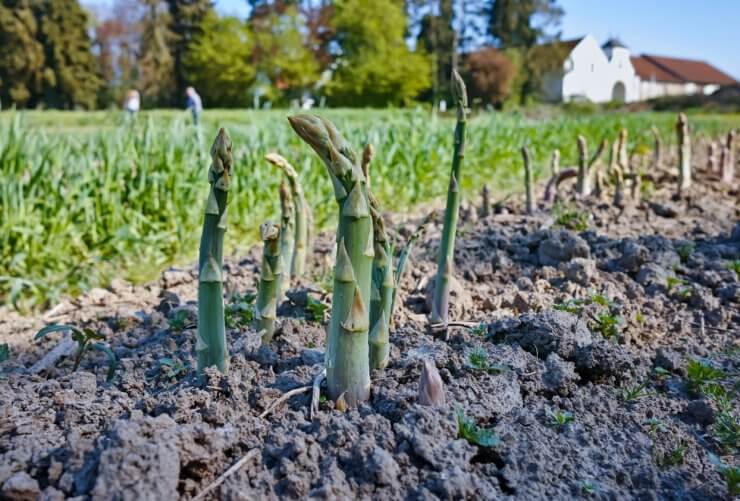
Asparagus in healthy soil
Healthy asparagus plants start with great soil in which to grow them. Asparagus thrives in well-drained soil that has been enriched with organic matter, such as well-aged compost or manure, a few weeks before planting.
And it’s alright if you don’t make your own compost—you can buy bulk compost from most gardening supply stores. Try to find “certified compost” with the U.S. Composting Council’s Seal of Testing Assurance (STA)—their rigorous testing process and standards will ensure you get quality compost.
If you have acidic soil, you’ll want to add lime, as asparagus grows best in sandy, loamy soil with a pH of 6.5 to 7.0. With your compost and amendments on top of your soil, use a spade fork to turn the soil over and mix everything together.
Remember, soil health is one of the most important things to ensuring that your asparagus plants thrive and produce a high quantity of quality asparagus.
When it comes to companion planting asparagus, here are some plants that asparagus like to share space with. Be sure to give asparagus plenty of space of its own, but you can plant these nearby, and they will help deter pests:
- Nightshades like tomatoes and eggplant
- Basil
- Parsley
- Coriander
- Comfrey
- Dill
- Marigolds
- Nasturtiums
And here is a list of plants to keep away from your asparagus, as they can stunt growth:
- Alliums like onions, leeks, and garlic
- Potatoes
What type of soil do you use to grow your asparagus? Do you use compost or manure? What are your best tips for creating optimal soil for your asparagus? Please share your techniques with us.


 Previous
Previous


Hi Judy,
Looks like you found what you needed in the Planting and Pruning Asparagus section
I have asparagus roots to plant. What is the correct way to plant them?